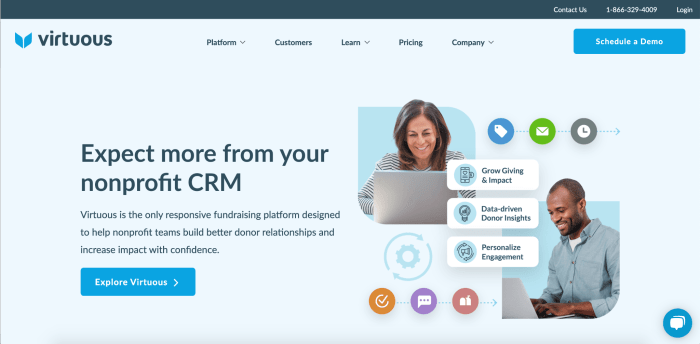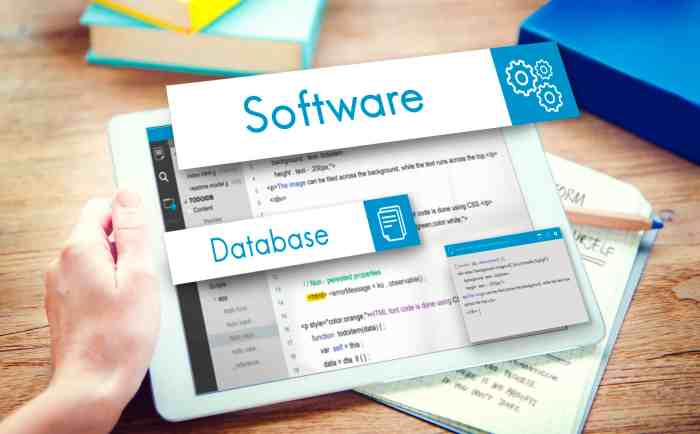Crm donor management software – In today’s competitive nonprofit landscape, effectively managing donor relationships is paramount to securing sustainable funding. Donor management software (DMS), often integrated with Customer Relationship Management (CRM) functionalities, offers a powerful solution for streamlining processes, improving communication, and ultimately, maximizing fundraising efforts. This comprehensive guide delves into the intricacies of donor management software, exploring its key features, benefits, and considerations for choosing the right system for your organization.
Understanding Donor Management Software (DMS)
Donor management software is a specialized type of CRM designed to help nonprofits track and nurture their donor relationships. It goes beyond simple contact management, providing tools to manage donations, track engagement, segment audiences, and analyze fundraising performance. Effective DMS systems empower organizations to build stronger relationships with donors, leading to increased retention and larger contributions. Key functionalities often include:

Source: donorbox.org
Core Features of Donor Management Software:
- Contact Management: Centralized database storing comprehensive donor information (name, address, contact details, donation history, communication preferences, etc.).
- Donation Tracking: Detailed records of all donations, including date, amount, payment method, and associated fundraising campaigns.
- Fundraising Campaign Management: Tools to plan, execute, and track the success of fundraising campaigns, including email marketing, event registration, and online donation forms.
- Reporting and Analytics: Comprehensive dashboards and reports providing insights into donor behavior, fundraising performance, and areas for improvement. This often includes donor segmentation based on giving history, demographics, and engagement levels.
- Grant Management: For organizations receiving grants, DMS can help track grant applications, deadlines, reporting requirements, and overall grant lifecycle management.
- Volunteer Management: Some systems integrate volunteer management capabilities, allowing you to track volunteer hours, skills, and assignments.
- Communication Management: Automated email marketing, personalized communication tools, and multi-channel communication capabilities (email, SMS, phone).
- Integration Capabilities: Ability to integrate with other systems like accounting software, payment gateways, and email marketing platforms for seamless data flow.
- Data Security and Privacy: Robust security measures to protect sensitive donor data and comply with relevant data privacy regulations (e.g., GDPR, CCPA).
Benefits of Implementing Donor Management Software
Investing in robust donor management software offers a multitude of benefits for nonprofits of all sizes. These include:
- Improved Donor Relationships: Personalized communication and targeted outreach foster stronger connections with donors.
- Increased Donor Retention: Proactive engagement and timely acknowledgment of donations improve donor loyalty.
- Enhanced Fundraising Efficiency: Streamlined processes and automated tasks free up staff time for strategic fundraising initiatives.
- Better Data-Driven Decision Making: Comprehensive reporting and analytics provide insights into donor behavior and campaign effectiveness.
- Improved Fundraising ROI: Optimized fundraising strategies lead to a higher return on investment.
- Increased Transparency and Accountability: Centralized data provides a clear picture of fundraising activities and financial performance.
- Scalability and Growth: DMS can adapt to the changing needs of your organization as it grows.
Choosing the Right Donor Management Software
Selecting the appropriate DMS requires careful consideration of several factors:
Key Considerations When Choosing DMS:, Crm donor management software
- Organization Size and Needs: Choose a system that aligns with your organization’s size, budget, and specific requirements.
- Features and Functionality: Prioritize features that are essential to your fundraising and donor engagement strategies.
- Budget and Pricing: Evaluate different pricing models (subscription-based, one-time purchase) and ensure it fits within your budget.
- Ease of Use and User Interface: Select a system with an intuitive interface that is easy for your staff to learn and use.
- Integration Capabilities: Consider the importance of integration with other systems you use (accounting software, email marketing platforms, etc.).
- Data Security and Compliance: Ensure the software provider adheres to strict data security and privacy standards.
- Customer Support and Training: Choose a provider that offers reliable customer support and comprehensive training resources.
- Scalability: Select a system that can accommodate your organization’s growth and evolving needs.
Popular Donor Management Software Options
(Note: This section would list specific software options with brief descriptions. Due to the rapidly changing software market, providing specific names and details here would quickly become outdated. It’s best to research current options independently.)
Frequently Asked Questions (FAQs)
- Q: What is the difference between CRM and Donor Management Software? A: While DMS is a type of CRM, it’s specifically designed for nonprofits to manage donor relationships and fundraising activities. A general CRM might lack the specialized features needed for effective nonprofit fundraising.
- Q: How much does donor management software cost? A: Costs vary greatly depending on the features, vendor, and organization size. Expect a range from free (limited features) to thousands of dollars per year for enterprise-level solutions.
- Q: Is donor management software difficult to learn? A: Most modern DMS systems are designed with user-friendliness in mind. However, the learning curve will depend on the software’s complexity and your staff’s technical skills. Look for systems with good training resources.
- Q: How can I ensure the security of my donor data? A: Choose a reputable vendor with robust security measures in place. Look for features like data encryption, access controls, and regular security audits. Also, ensure compliance with relevant data privacy regulations.
- Q: Can donor management software help with grant writing? A: Some DMS systems offer features to help track grant applications, deadlines, and reporting requirements, but it’s not a primary function of all systems. Check for this specific feature if it’s crucial to your organization.
Conclusion
Donor management software is an invaluable tool for nonprofits seeking to optimize their fundraising efforts and build lasting relationships with their donors. By carefully considering your organization’s needs and selecting the right system, you can significantly improve your fundraising efficiency, donor retention, and overall impact.
Call to Action
Ready to transform your fundraising strategy? Explore different donor management software options today and find the perfect fit for your nonprofit organization. Start maximizing your fundraising potential and building stronger donor relationships!
Popular Questions: Crm Donor Management Software
What are the benefits of using CRM donor management software?
Improved donor relationship management, increased fundraising efficiency, better data analysis for informed decision-making, streamlined administrative tasks, and enhanced communication.
How much does CRM donor management software cost?
Costs vary widely depending on features, scalability, and vendor. Options range from affordable cloud-based solutions to more expensive enterprise-level systems. Many offer tiered pricing based on the number of users or contacts.

Source: donorbox.org
What are some key features to look for in CRM donor management software?
Contact management, donation tracking, fundraising campaign management, reporting and analytics, integration capabilities, and robust security features are crucial considerations.
How can I choose the right CRM donor management software for my organization?
Assess your organization’s specific needs and budget, research different vendors, and consider factors like ease of use, scalability, and integration with existing systems. Request demos and compare features before making a decision.
